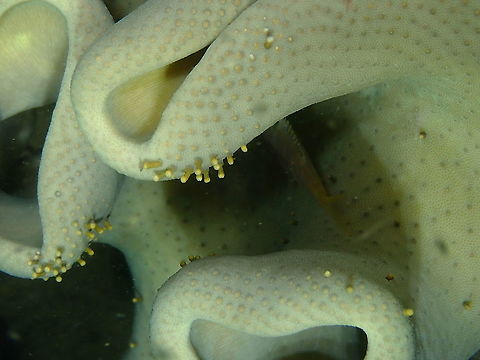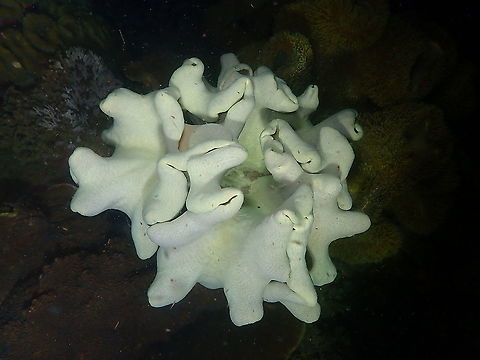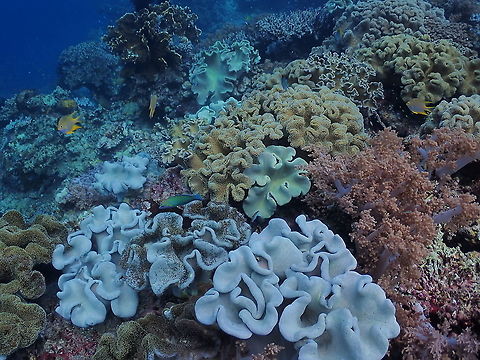
Appearance
This soft coral forms large colonies that can cover several square meters. It differs from other Sarcophyton by its large size. It comes in the form of a very wavy, upright, wide leaf, on a large massive foot attached to the substrate. Its color is yellow-greenish to green-bluish. The surface is covered with siphonozoids, autozoid polyps, tubes ending in pinnate tentacles, light brown in color, retractable and variable in length, depending on the light. Examination of the skeleton shows elongated, thin warty sclerites and others in the shape of a warty, multiple-headed club, others short, oval, warty. Size 15 - 80 cm, depth 1- 30 m
Distribution
Indo-Pacific. Tropical to subtropical. Red Sea, Indian Ocean and Indo Pacific, China Sea.Habitat
Inhabit shallow reef tops, lagoons, and reef slopes and usually seen in depths between 6 - 15 feet (2 - 5 m).Reproduction
Members of the class Anthozoa are either gonochoric or hermaphroditic. Mature gametes are shed into the coelenteron and spawned through the mouth. Life cycle: The zygote develops into a planktonic planula larva. Metamorphosis begins with early morphogenesis of tentacles, septa and pharynx before larval settlement on the aboral end.Food
It lives in symbiosis with microscopic algae, zooxanthellae, which provide food against habitat. Polyps also capture zooplankton.Uses
This coral is the subject of research for its antibacterial effects against Bacillus cereus, Salmonella typhi, Escherichia coli, Staphylococcus aureus and Pseudomonas aeruginosa.References:
Some text fragments are auto parsed from Wikipedia.
http://www.marinespecies.org/aphia.php?p=taxdetails&id=209618https://www.sealifebase.se/summary/Sarcophyton-trocheliophorum.html
https://nomadica.jimdofree.com/cnidaires/coraux-mous-plumes-de-mer/sarcophyton-trocheliophorum/
